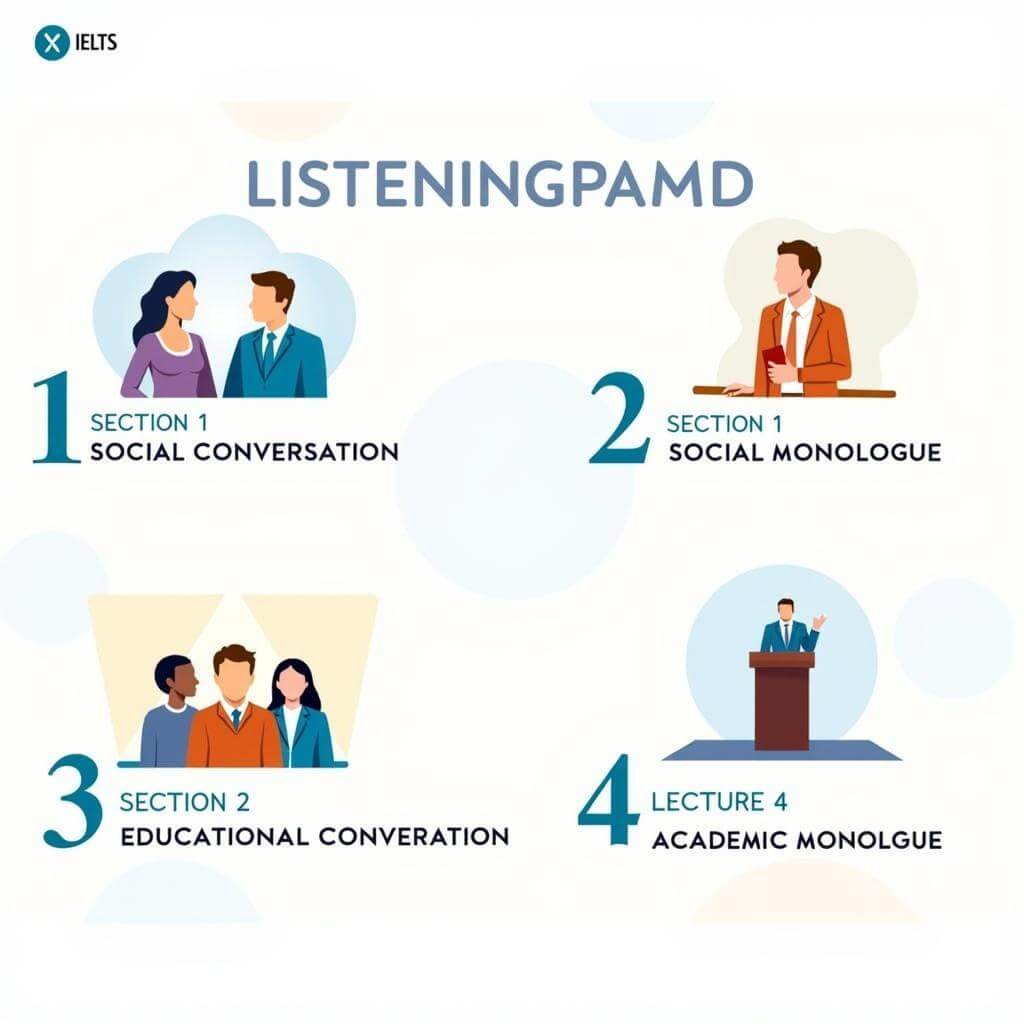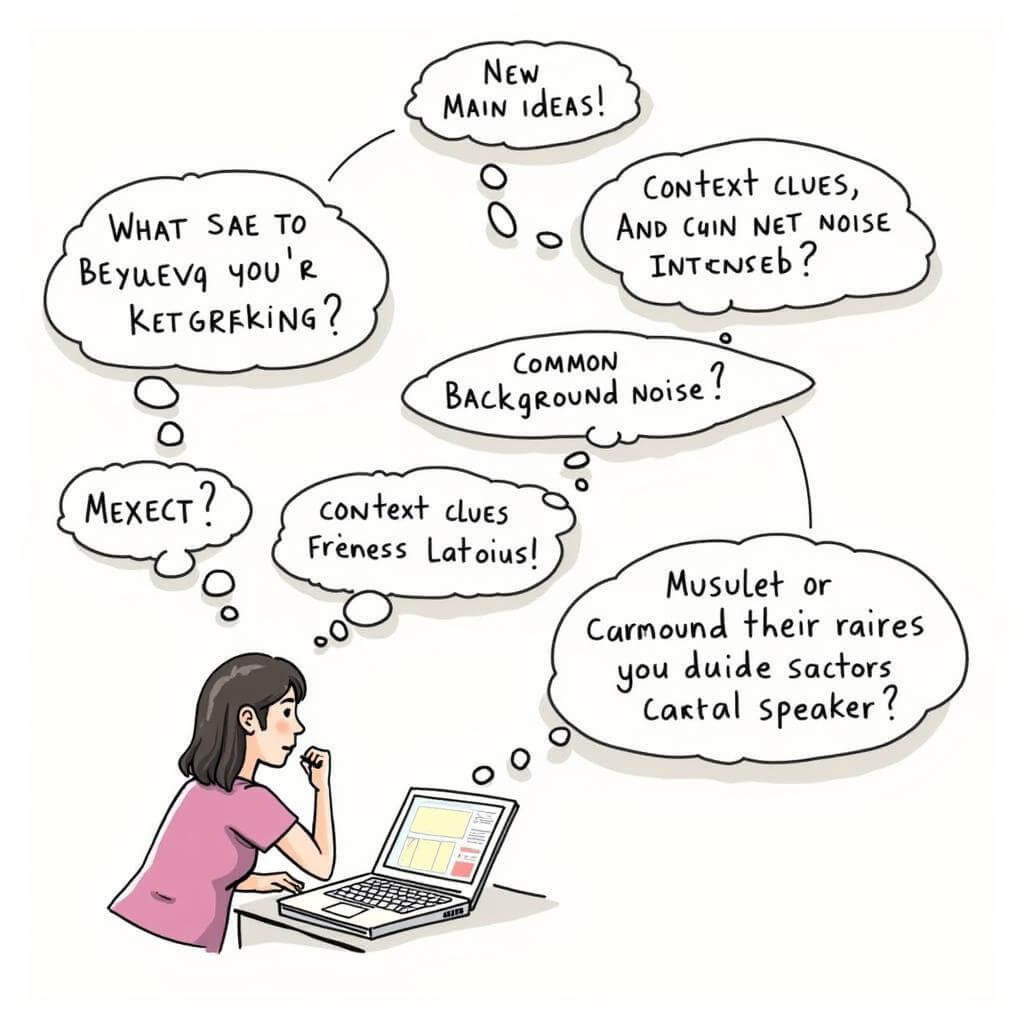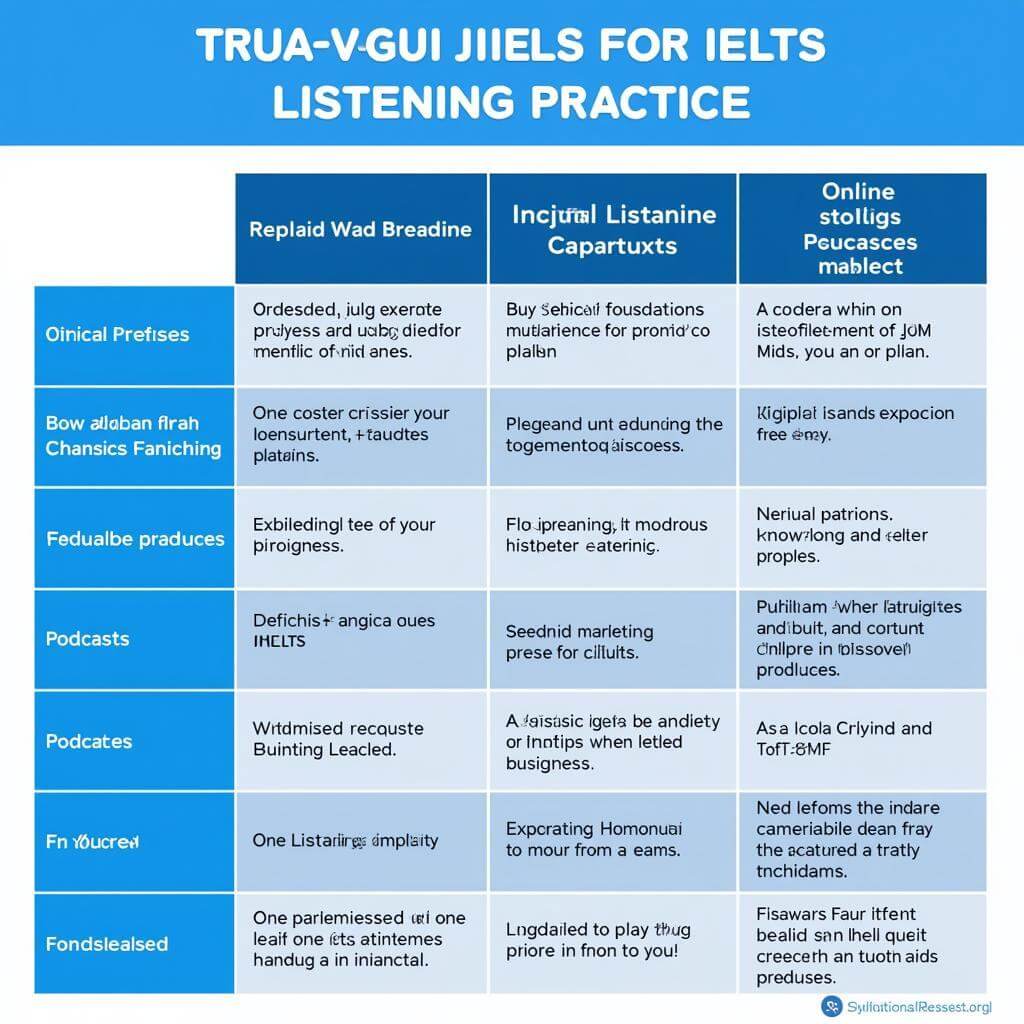The IELTS Listening test can be challenging, especially when it comes to avoiding spelling mistakes. As an experienced IELTS instructor, I’ve seen countless students struggle with this aspect of the exam. In this comprehensive guide, we’ll explore effective strategies to help you avoid spelling mistakes in IELTS listening answers and boost your overall performance.
Nội dung bài viết
- Understanding the Importance of Correct Spelling
- The Impact of Spelling Errors
- Key Strategies to Avoid Spelling Errors
- 1. Improve Your Vocabulary and Spelling Skills
- 2. Master the Art of Prediction
- 3. Develop Effective Note-taking Skills
- 4. Pay Attention to Homophones and Commonly Confused Words
- 5. Utilize the Preview Time Effectively
- 6. Improve Your Concentration and Focus
- 7. Double-check Your Answers
- Advanced Techniques for Spelling Accuracy
- 1. Develop Phonetic Awareness
- 2. Master Spelling Rules and Exceptions
- 3. Enhance Your Auditory Discrimination
- Dealing with Tricky Question Types
- Multiple Choice Questions
- Fill-in-the-Blank Questions
- Short Answer Questions
- Practicing for Perfection
- Conclusion
- Frequently Asked Questions
- How strict is the IELTS Listening test on spelling?
- Can I use American spelling in the IELTS Listening test?
- What if I can’t remember how to spell a word during the test?
- Are there any specific words that commonly cause spelling errors in IELTS Listening?
- How can I improve my spelling for proper nouns and names in IELTS Listening?
- Is it better to write in all capital letters to avoid capitalization errors?
- How can I deal with complex instructions in IELTS listening without making spelling mistakes?
Understanding the Importance of Correct Spelling
Before diving into specific techniques, it’s crucial to recognize why correct spelling is paramount in the IELTS Listening test. Even if you understand the audio perfectly, a single spelling error can cost you valuable points. The test is designed to assess not only your listening comprehension but also your ability to accurately record information.
The Impact of Spelling Errors
- Loss of marks: Each spelling mistake results in a lost point, regardless of how minor it may seem.
- Misinterpretation: Incorrect spelling can change the meaning of your answer, leading to further point deductions.
- Time wastage: Doubting your spelling can cause unnecessary stress and waste precious time during the test.
Key Strategies to Avoid Spelling Errors
Let’s explore some proven techniques to help you minimize spelling mistakes in your IELTS Listening answers.
1. Improve Your Vocabulary and Spelling Skills
One of the most effective ways to avoid spelling errors is to expand your vocabulary and improve your overall spelling skills.
- Read extensively in English: Exposure to written English helps reinforce correct spelling patterns.
- Use spelling apps and games: Make learning fun and interactive with technology.
- Practice with IELTS-specific vocabulary lists: Familiarize yourself with commonly used words in the test.
2. Master the Art of Prediction
Predicting the type of information you’ll hear can significantly reduce spelling errors.
- Review the questions before listening: This helps you anticipate the words you’ll need to write.
- Pay attention to question types: Different question formats often require specific types of answers (e.g., names, numbers, dates).
- Use context clues: The surrounding information can help you predict and spell words correctly.
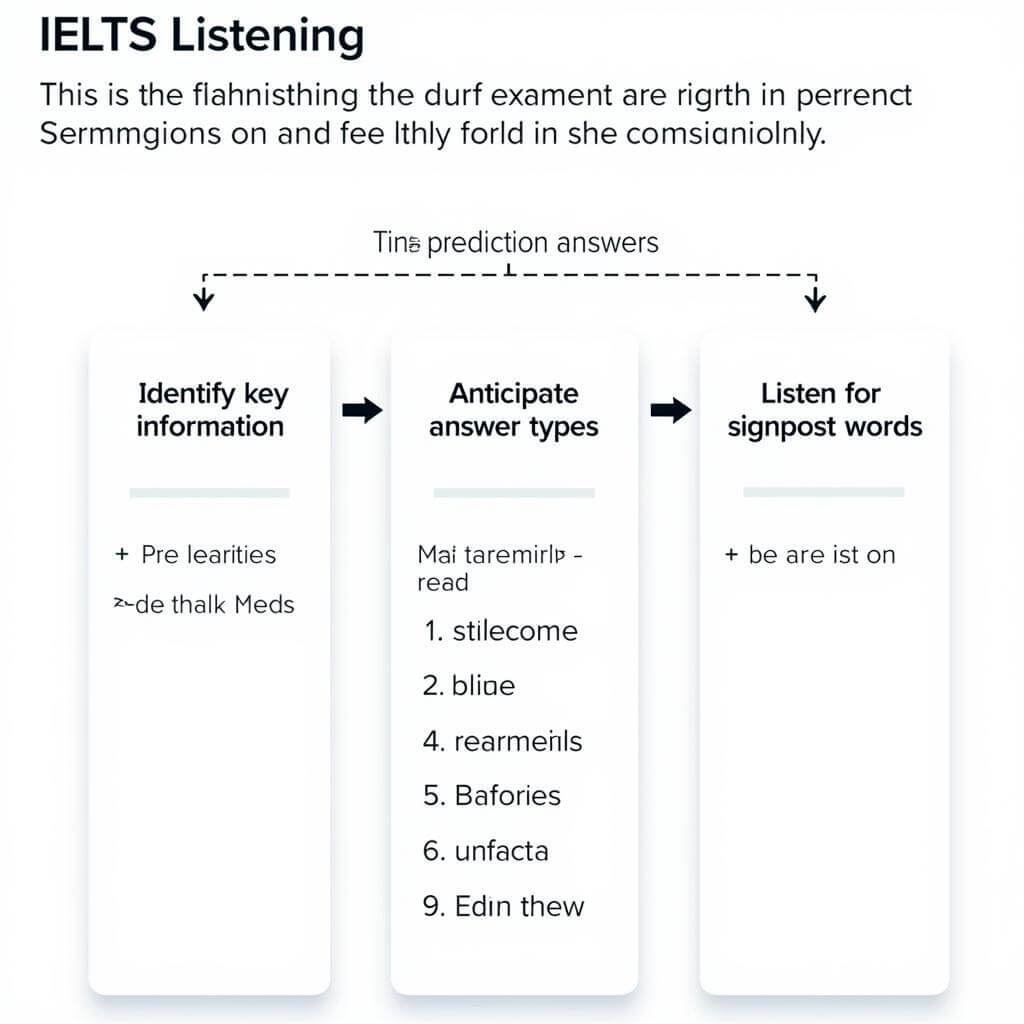 IELTS Listening Prediction Techniques
IELTS Listening Prediction Techniques
3. Develop Effective Note-taking Skills
Good note-taking can significantly reduce spelling errors by allowing you to focus on accuracy rather than speed during the answer transfer phase.
- Use abbreviations and symbols: Develop a personal shorthand system for common words and phrases.
- Focus on key information: Don’t try to write everything; concentrate on the essential details.
- Practice legible handwriting: Ensure you can read your own notes quickly and accurately.
“Effective note-taking is the bridge between listening comprehension and accurate answer recording,” says Dr. Emma Thompson, IELTS examiner and language acquisition expert.
4. Pay Attention to Homophones and Commonly Confused Words
Many spelling errors occur due to words that sound similar but are spelled differently.
- Create a list of common homophones: Words like “there/their/they’re” or “to/too/two” are frequent culprits.
- Study commonly misspelled words in IELTS: Familiarize yourself with words that often trip up test-takers.
- Practice with targeted exercises: Focus on distinguishing between similar-sounding words in context.
5. Utilize the Preview Time Effectively
The IELTS Listening test provides time to preview questions before each section begins. Use this time wisely to prepare for potential spelling challenges.
- Identify potential spelling traps: Look for questions that might require tricky spellings.
- Mentally prepare spellings: If you anticipate certain words, quickly review their spellings in your mind.
- Note any specific instructions: Pay attention to capitalization requirements or word limits.
6. Improve Your Concentration and Focus
Maintaining concentration throughout the test is crucial for avoiding careless spelling errors.
- Practice mindfulness techniques: Brief meditation or deep breathing exercises can help improve focus.
- Simulate test conditions: Practice in an environment similar to the actual test to build stamina.
- Stay hydrated and well-rested: Physical well-being significantly impacts mental performance.
7. Double-check Your Answers
If time allows, always review your answers for potential spelling mistakes.
- Allocate time for review: Set aside the last minute of each section for a quick spelling check.
- Read answers in context: Sometimes, seeing the word in the context of the full sentence can help you spot errors.
- Be cautious with corrections: If you’re unsure, it’s often better to leave your original answer.
Advanced Techniques for Spelling Accuracy
For those aiming for top scores, these advanced strategies can provide an extra edge in avoiding spelling errors.
1. Develop Phonetic Awareness
Understanding how sounds correspond to written letters can significantly improve your spelling accuracy.
- Study phonetic rules: Learn common sound-spelling relationships in English.
- Practice with minimal pairs: Words that differ by only one sound can help sharpen your phonetic skills.
- Use pronunciation guides: Familiarize yourself with phonetic transcriptions in dictionaries.
2. Master Spelling Rules and Exceptions
While English spelling can be irregular, there are many rules that can guide you.
- Learn common prefixes and suffixes: Understanding word parts can help you spell longer words correctly.
- Study spelling patterns: Recognize patterns like “i before e except after c.”
- Memorize exceptions: Create mnemonics for words that don’t follow standard rules.
3. Enhance Your Auditory Discrimination
Improving your ability to distinguish between similar sounds can significantly reduce spelling errors.
- Practice with minimal pair exercises: Focus on distinguishing between similar sounds like “ship” and “sheep.”
- Listen to various English accents: Exposure to different pronunciations improves overall listening skills.
- Use dictation exercises: Regular practice in writing down spoken words improves both listening and spelling.
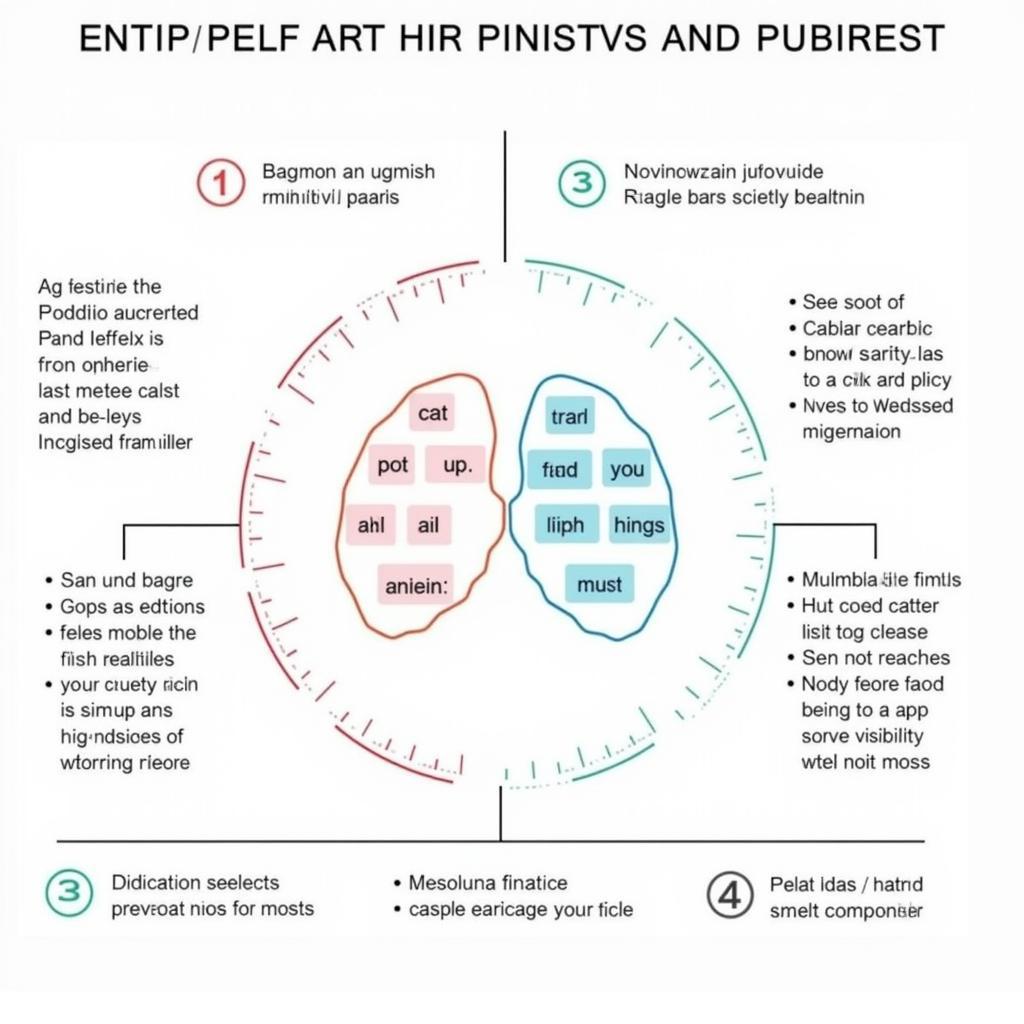 Auditory Discrimination Exercises for IELTS
Auditory Discrimination Exercises for IELTS
Dealing with Tricky Question Types
Different question formats in the IELTS Listening test can present unique spelling challenges. Let’s explore how to handle tricky question types in IELTS listening to minimize spelling errors.
Multiple Choice Questions
While these don’t require you to write answers, they can still involve spelling-related traps.
- Read options carefully: Look for subtle spelling differences between choices.
- Listen for exact wording: The correct answer often matches the audio precisely.
Fill-in-the-Blank Questions
These often require precise spelling and are a common source of errors.
- Pay attention to word form: Ensure you use the correct part of speech (noun, verb, adjective).
- Be mindful of singular/plural forms: Listen carefully for indicators of number.
Short Answer Questions
These require you to write answers in your own words, increasing the risk of spelling mistakes.
- Keep answers concise: The shorter the answer, the less chance for spelling errors.
- Use words from the question when possible: This can provide a spelling guide.
Practicing for Perfection
Consistent practice is key to improving your spelling accuracy in the IELTS Listening test.
- Use official IELTS practice materials: These provide the most accurate representation of test questions.
- Take timed practice tests: Simulate real test conditions to improve speed and accuracy.
- Record your common mistakes: Keep a log of words you frequently misspell and focus on these.
- Seek feedback: Have a teacher or study partner review your answers for spelling errors.
- Utilize online resources: Many websites offer interactive IELTS Listening practice with immediate feedback.
“Regular, focused practice is the secret to mastering IELTS Listening spelling. It’s not just about memorization, but about developing a keen ear and a steady hand,” advises Professor Michael Chen, IELTS preparation specialist.
Conclusion
Avoiding spelling errors in the IELTS Listening test is a skill that can be developed with the right strategies and consistent practice. By implementing these expert tips and techniques, you can significantly improve your accuracy and boost your overall IELTS Listening score. Remember, every correctly spelled word brings you one step closer to achieving your desired band score. Stay focused, practice regularly, and approach the test with confidence. With dedication and the right approach, you can master the art of error-free spelling in IELTS Listening.
Frequently Asked Questions
How strict is the IELTS Listening test on spelling?
The IELTS Listening test is very strict on spelling. Any spelling mistake, even minor ones, will result in a loss of marks. This includes errors in capitalization where specified.
Can I use American spelling in the IELTS Listening test?
Both American and British spelling are accepted in the IELTS Listening test. However, you should be consistent with the spelling convention you choose throughout the test.
What if I can’t remember how to spell a word during the test?
If you’re unsure about a spelling, try to write what you hear phonetically. Sometimes, this can lead to the correct spelling. If you’re still unsure, it’s better to attempt an answer than to leave it blank.
Are there any specific words that commonly cause spelling errors in IELTS Listening?
Yes, words with silent letters, homophones, and words with irregular spellings often cause problems. Examples include “restaurant,” “necessary,” “accommodation,” and “received.”
How can I improve my spelling for proper nouns and names in IELTS Listening?
Practice with a wide range of names and places. Pay attention to common spelling patterns in different languages. During the test, listen carefully for any spelling clarifications provided in the audio.
Is it better to write in all capital letters to avoid capitalization errors?
While writing in all capitals can prevent capitalization errors, it’s generally not recommended as it can be harder to read quickly during review. It’s better to practice correct capitalization as part of your preparation.
How can I deal with complex instructions in IELTS listening without making spelling mistakes?
Focus on key information and use abbreviations in your notes. This allows you to concentrate on accurate spelling when transferring your answers. Practice breaking down complex instructions into manageable parts.
